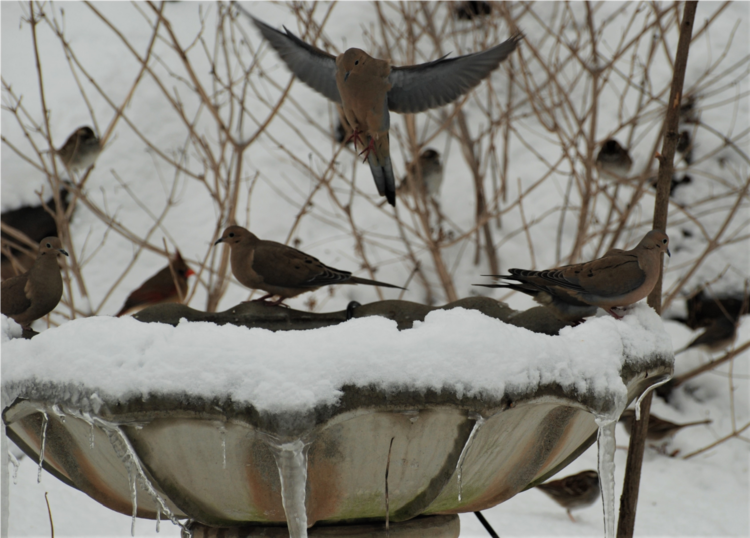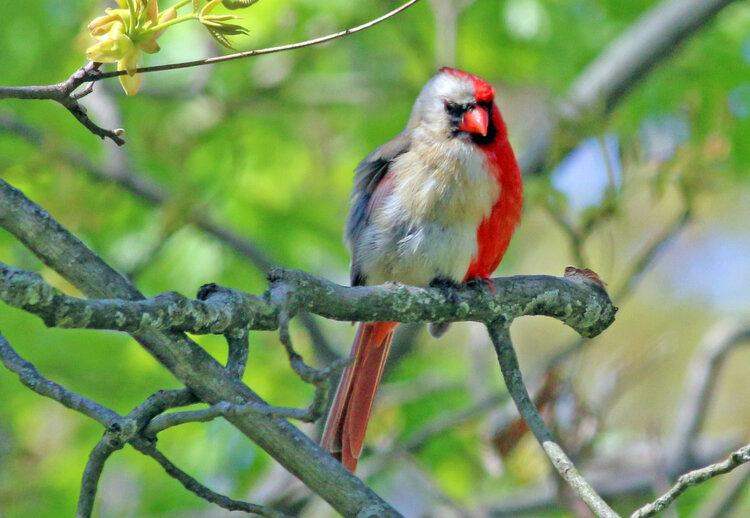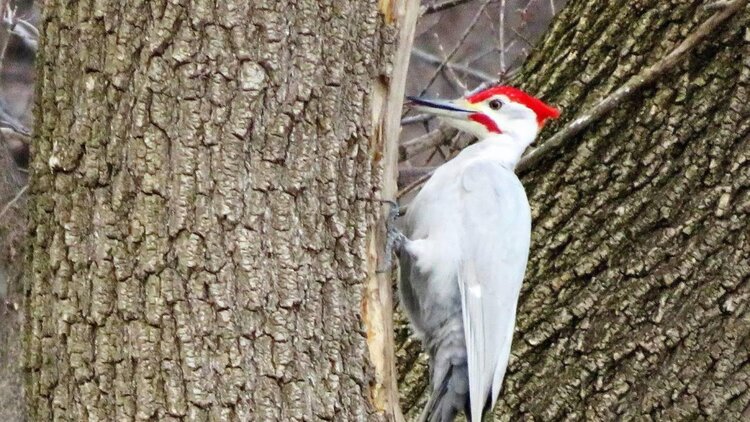Bird Water In Winter
Jerry Wayne Davis
 I have said that water for birds and other wildlife is critical and needed every day of the year. This can become a challenge when temperatures get below freezing and the water in bird baths and water sites are frozen. In winter I have even taken water from the house and poured on the ice. Although birds are what comes to mind, in my yard, deer, chipmunks, raccoons, and squirrels also need water. If snow is available you will see birds eating snow if they do not have available water. This has a significant down side in their efforts to gain moisture. Snow reduces their internal body temperature using calories to maintain body heat that they need for survival in such austere winter conditions when insects are not available and seeds are scarce.
I have said that water for birds and other wildlife is critical and needed every day of the year. This can become a challenge when temperatures get below freezing and the water in bird baths and water sites are frozen. In winter I have even taken water from the house and poured on the ice. Although birds are what comes to mind, in my yard, deer, chipmunks, raccoons, and squirrels also need water. If snow is available you will see birds eating snow if they do not have available water. This has a significant down side in their efforts to gain moisture. Snow reduces their internal body temperature using calories to maintain body heat that they need for survival in such austere winter conditions when insects are not available and seeds are scarce.
You can help keep water from freezing by placing a bird bath or stock bucket heater. These heaters are available at livestock supply sources like Tractor Supply, your local feed store, wild bird centers or ordered online. There are different sizes and watts. They have a sensor inside that turns the unit on when the water temperature reaches 35 degrees and it starts heating the water to keep it from freezing. They are not on all of the time and stay inactive in warmer temperatures. This is the time to consider helping all wildlife that need water in winter. One would make a good gift for those that care about birds and other wildlife. Below you see Mourning Doves on the edges, the water is available because the bird bath has a water heater to keep it from freezing. Our birds and other wildlife need your help.
 ShakeUp Music recomposed Mozart’s Magic Flute ‚Papageno/Papagena Duet‘ into an audiovisual bird song aria. Listen to an audiovisual twitterstorm performed by our feathered fellows.
ShakeUp Music recomposed Mozart’s Magic Flute ‚Papageno/Papagena Duet‘ into an audiovisual bird song aria. Listen to an audiovisual twitterstorm performed by our feathered fellows.
BI-COLORED CARDINAL
 John Schwegman, a friend of Jerry Butler, who birds in Southern Illinois took this photo in Messac County
John Schwegman, a friend of Jerry Butler, who birds in Southern Illinois took this photo in Messac County
A LEUCISTIC PILATED WOODPECKER
JERRY DAVIS SHARED THE PHOTO OF THE PILEATED WOODPECKER AND THE DEFINITION OF THE TERM LEUCISTIC.
Leucistic is a condition in which there is partial loss of pigmentation in an animal resulting in white, pale, or patchy coloration of the skin, hair,feathers, scales or cuticle, but not the eyes. Unlike albinism, it is caused by a reduction in multiple types of pigment, not just melanin.
